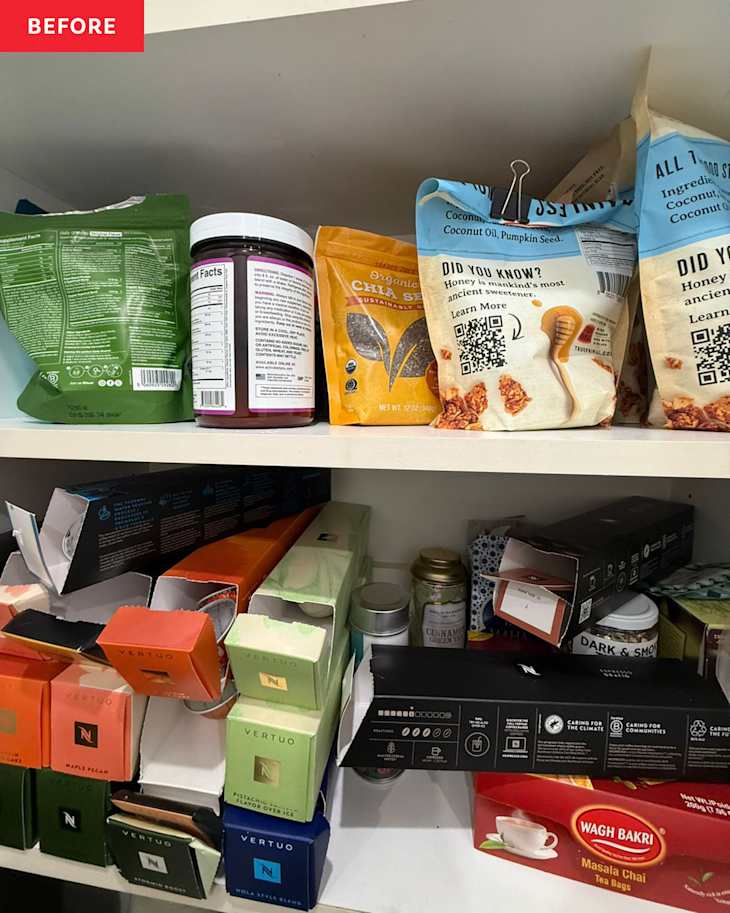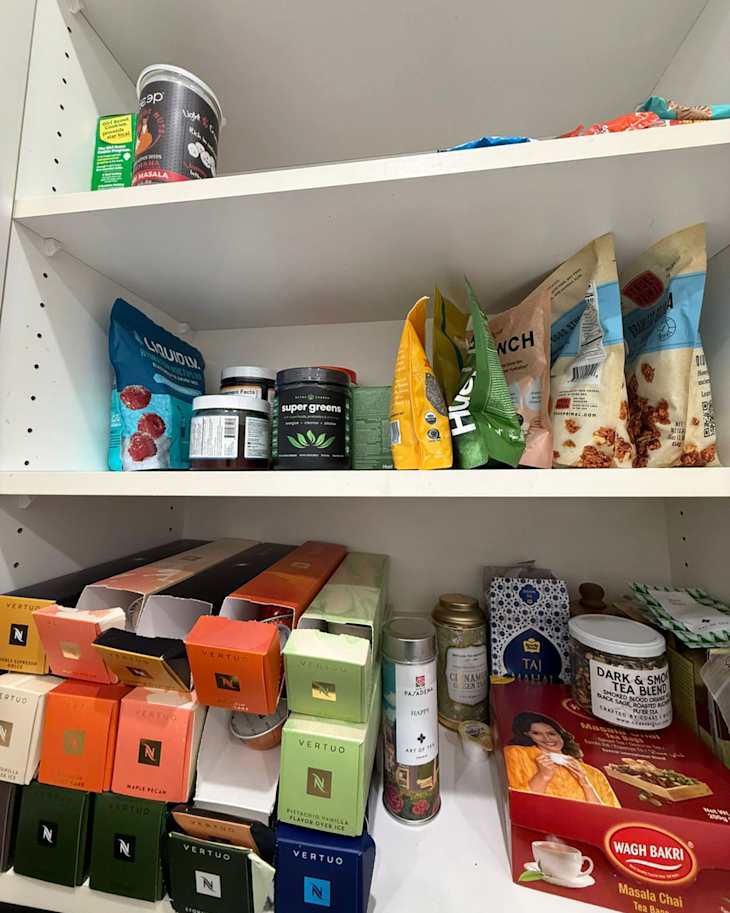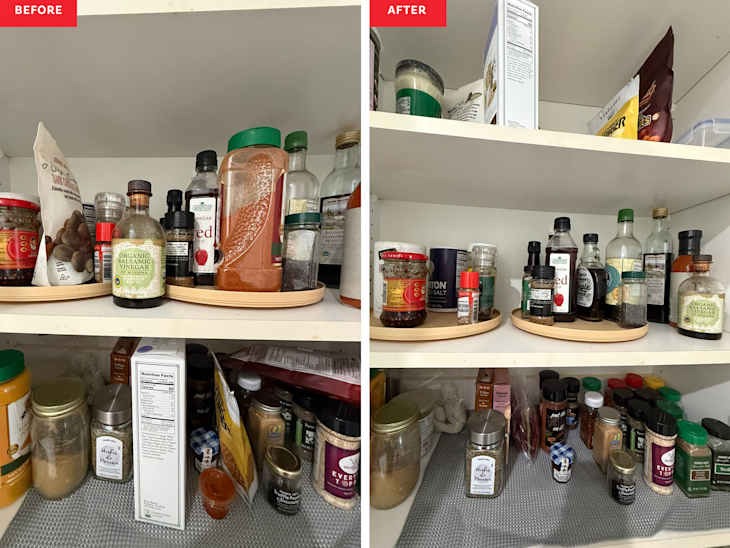

I grew up in the city of Mumbai in India. Every year, a few weeks before Diwali — the Hindu festival symbolizing the triumph of light over darkness, good over evil — my mom undertook “Diwali Safai,” the tradition of a deep-clean before the festival to welcome good fortune. In Hinduism, this practice of cleaning your home before the festive season is an important ritual to invite Goddess Lakshmi, the deity of wealth and prosperity, into your home.
This year, I decided to apply the concept of “Diwali Safai” to the most overwhelming space in my own home: my kitchen. The celebration kicks off on October 20, and it’s the perfect time to declutter for fall and winter.

What Is the “Diwali Safai” Rule?
Diwali, the festival of lights, signifies a new beginning, wherein you welcome new blessings by making room for them in your home. A messy, dusty, or disorganized house is viewed as one that prevents the flow of positive energy and prosperity.
My mom always began “Diwali Safai” with the kitchen, the heart of the home, and then moved on to the bedrooms, bathrooms, and living room. The approach was to tackle one room at a time and declutter each space thoroughly before decorating it with the symbolic light of diyas (oil lamps), candles, and lanterns.
How to Use “Diwali Safai” to Deep Clean Your Kitchen
I decided to use the same “one-zone-at-a-time” approach to refresh my kitchen. I broke down the space into zones and decided to clean one section every day for an entire week. I divided the process into separate days to prevent burnout and to give me the time to completely focus on one area per day.
On day one, I cleaned my pantry. On day two, I organized my utensils drawer. On day three, I cleaned out my spice cabinet, and so on. My pantry was a completely disorganized mess full of expired ingredients and hiding half-eaten items. The utensils drawer was packed with plastic cutlery from takeout orders (even though I’ve stopped using plastic) and old utensils that had no place in my home. The spice cabinet was filled to the brim with old seasonings and other random cooking ingredients, making it tough to find anything.

For all the different zones, I followed the same process: I went through each item, checked the expiration dates, and tossed old food ingredients and tools. I then organized the remaining ingredients in height order so that it would be easy to spot each item. After a week, when I was done, I was shocked by the difference the “Diwali Safai” rule made. Not only was my kitchen clean and organized, but it also felt like I had more space for new items.

By carefully eliminating old and broken tools and stale pantry items, I cleansed my kitchen and regained my sense of control. I proved to myself that my kitchen and my life were deserving and ready to receive Goddess Lakshmi’s blessings! I used the “Diwali Safai” approach to different parts of my home after, and before I knew it, I was ready for the festive season of Diwali.
Who knew that applying the age-old custom of “Diwali Safai” to my modern kitchen would help me create a more functional and peaceful space and give me a sense of harmony and control? I sure didn’t — but I’m so glad I gave it a try.